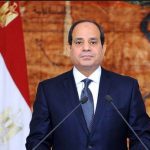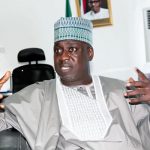Puntland, a semi-autonomous territory, has announced that it will withdraw from the country’s federal system and govern freely until constitutional modifications passed by Somalia’s central government are ratified in a nationwide referendum.
The federal parliament in Mogadishu on Saturday passed several constitutional amendments that the government claims are required to maintain a stable democratic system.
However, Puntland has rejected the recent constitutional revisions adopted by the Somali Parliament.
The state’s council of ministers in a statement said “Puntland will act independently until there is a federal government with a constitution agreed upon in a referendum in which Puntland participates.”
However, some critics argue that the changes, which include direct presidential elections and the president’s ability to designate a prime minister without parliamentary approval, centralize power in the executive branch.
One of the most significant changes brought about by this amendment is the implementation of universal suffrage, which ends the clan-based indirect voting system that has been in effect in Somalia for decades.
Puntland is a territory in northeast Somalia that declared itself an autonomous state in August 1998 and has since sought to join a federal Somalia.
The latest event is viewed as a difficult nut to crack for President Hassan Sheikh Mohamud, who is battling an al Qaeda-linked insurgency and asserting federal control over Somaliland.
Puntland, a semi-autonomous territory, has announced that it will withdraw from the country’s federal system and govern freely until constitutional modifications passed by Somalia’s central government are ratified in a nationwide referendum.
The federal parliament in Mogadishu on Saturday passed several constitutional amendments that the government claims are required to maintain a stable democratic system.
However, Puntland has rejected the recent constitutional revisions adopted by the Somali Parliament.
The state’s council of ministers in a statement said “Puntland will act independently until there is a federal government with a constitution agreed upon in a referendum in which Puntland participates.”
However, some critics argue that the changes, which include direct presidential elections and the president’s ability to designate a prime minister without parliamentary approval, centralize power in the executive branch.
One of the most significant changes brought about by this amendment is the implementation of universal suffrage, which ends the clan-based indirect voting system that has been in effect in Somalia for decades.
Puntland is a territory in northeast Somalia that declared itself an autonomous state in August 1998 and has since sought to join a federal Somalia.
The latest event is viewed as a difficult nut to crack for President Hassan Sheikh Mohamud, who is battling an al Qaeda-linked insurgency and asserting federal control over Somaliland.
Puntland, a semi-autonomous territory, has announced that it will withdraw from the country’s federal system and govern freely until constitutional modifications passed by Somalia’s central government are ratified in a nationwide referendum.
The federal parliament in Mogadishu on Saturday passed several constitutional amendments that the government claims are required to maintain a stable democratic system.
However, Puntland has rejected the recent constitutional revisions adopted by the Somali Parliament.
The state’s council of ministers in a statement said “Puntland will act independently until there is a federal government with a constitution agreed upon in a referendum in which Puntland participates.”
However, some critics argue that the changes, which include direct presidential elections and the president’s ability to designate a prime minister without parliamentary approval, centralize power in the executive branch.
One of the most significant changes brought about by this amendment is the implementation of universal suffrage, which ends the clan-based indirect voting system that has been in effect in Somalia for decades.
Puntland is a territory in northeast Somalia that declared itself an autonomous state in August 1998 and has since sought to join a federal Somalia.
The latest event is viewed as a difficult nut to crack for President Hassan Sheikh Mohamud, who is battling an al Qaeda-linked insurgency and asserting federal control over Somaliland.
Puntland, a semi-autonomous territory, has announced that it will withdraw from the country’s federal system and govern freely until constitutional modifications passed by Somalia’s central government are ratified in a nationwide referendum.
The federal parliament in Mogadishu on Saturday passed several constitutional amendments that the government claims are required to maintain a stable democratic system.
However, Puntland has rejected the recent constitutional revisions adopted by the Somali Parliament.
The state’s council of ministers in a statement said “Puntland will act independently until there is a federal government with a constitution agreed upon in a referendum in which Puntland participates.”
However, some critics argue that the changes, which include direct presidential elections and the president’s ability to designate a prime minister without parliamentary approval, centralize power in the executive branch.
One of the most significant changes brought about by this amendment is the implementation of universal suffrage, which ends the clan-based indirect voting system that has been in effect in Somalia for decades.
Puntland is a territory in northeast Somalia that declared itself an autonomous state in August 1998 and has since sought to join a federal Somalia.
The latest event is viewed as a difficult nut to crack for President Hassan Sheikh Mohamud, who is battling an al Qaeda-linked insurgency and asserting federal control over Somaliland.
Puntland, a semi-autonomous territory, has announced that it will withdraw from the country’s federal system and govern freely until constitutional modifications passed by Somalia’s central government are ratified in a nationwide referendum.
The federal parliament in Mogadishu on Saturday passed several constitutional amendments that the government claims are required to maintain a stable democratic system.
However, Puntland has rejected the recent constitutional revisions adopted by the Somali Parliament.
The state’s council of ministers in a statement said “Puntland will act independently until there is a federal government with a constitution agreed upon in a referendum in which Puntland participates.”
However, some critics argue that the changes, which include direct presidential elections and the president’s ability to designate a prime minister without parliamentary approval, centralize power in the executive branch.
One of the most significant changes brought about by this amendment is the implementation of universal suffrage, which ends the clan-based indirect voting system that has been in effect in Somalia for decades.
Puntland is a territory in northeast Somalia that declared itself an autonomous state in August 1998 and has since sought to join a federal Somalia.
The latest event is viewed as a difficult nut to crack for President Hassan Sheikh Mohamud, who is battling an al Qaeda-linked insurgency and asserting federal control over Somaliland.
Puntland, a semi-autonomous territory, has announced that it will withdraw from the country’s federal system and govern freely until constitutional modifications passed by Somalia’s central government are ratified in a nationwide referendum.
The federal parliament in Mogadishu on Saturday passed several constitutional amendments that the government claims are required to maintain a stable democratic system.
However, Puntland has rejected the recent constitutional revisions adopted by the Somali Parliament.
The state’s council of ministers in a statement said “Puntland will act independently until there is a federal government with a constitution agreed upon in a referendum in which Puntland participates.”
However, some critics argue that the changes, which include direct presidential elections and the president’s ability to designate a prime minister without parliamentary approval, centralize power in the executive branch.
One of the most significant changes brought about by this amendment is the implementation of universal suffrage, which ends the clan-based indirect voting system that has been in effect in Somalia for decades.
Puntland is a territory in northeast Somalia that declared itself an autonomous state in August 1998 and has since sought to join a federal Somalia.
The latest event is viewed as a difficult nut to crack for President Hassan Sheikh Mohamud, who is battling an al Qaeda-linked insurgency and asserting federal control over Somaliland.
Puntland, a semi-autonomous territory, has announced that it will withdraw from the country’s federal system and govern freely until constitutional modifications passed by Somalia’s central government are ratified in a nationwide referendum.
The federal parliament in Mogadishu on Saturday passed several constitutional amendments that the government claims are required to maintain a stable democratic system.
However, Puntland has rejected the recent constitutional revisions adopted by the Somali Parliament.
The state’s council of ministers in a statement said “Puntland will act independently until there is a federal government with a constitution agreed upon in a referendum in which Puntland participates.”
However, some critics argue that the changes, which include direct presidential elections and the president’s ability to designate a prime minister without parliamentary approval, centralize power in the executive branch.
One of the most significant changes brought about by this amendment is the implementation of universal suffrage, which ends the clan-based indirect voting system that has been in effect in Somalia for decades.
Puntland is a territory in northeast Somalia that declared itself an autonomous state in August 1998 and has since sought to join a federal Somalia.
The latest event is viewed as a difficult nut to crack for President Hassan Sheikh Mohamud, who is battling an al Qaeda-linked insurgency and asserting federal control over Somaliland.
Puntland, a semi-autonomous territory, has announced that it will withdraw from the country’s federal system and govern freely until constitutional modifications passed by Somalia’s central government are ratified in a nationwide referendum.
The federal parliament in Mogadishu on Saturday passed several constitutional amendments that the government claims are required to maintain a stable democratic system.
However, Puntland has rejected the recent constitutional revisions adopted by the Somali Parliament.
The state’s council of ministers in a statement said “Puntland will act independently until there is a federal government with a constitution agreed upon in a referendum in which Puntland participates.”
However, some critics argue that the changes, which include direct presidential elections and the president’s ability to designate a prime minister without parliamentary approval, centralize power in the executive branch.
One of the most significant changes brought about by this amendment is the implementation of universal suffrage, which ends the clan-based indirect voting system that has been in effect in Somalia for decades.
Puntland is a territory in northeast Somalia that declared itself an autonomous state in August 1998 and has since sought to join a federal Somalia.
The latest event is viewed as a difficult nut to crack for President Hassan Sheikh Mohamud, who is battling an al Qaeda-linked insurgency and asserting federal control over Somaliland.














